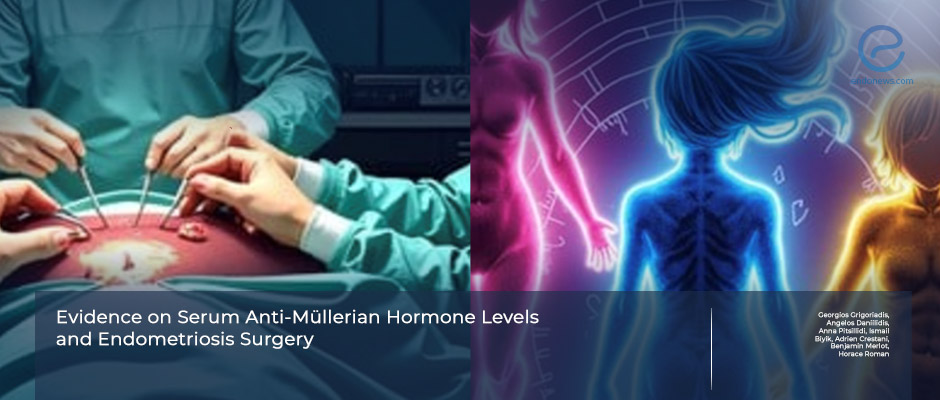Endometriosis surgery and Anti-Mullerian Hormone Levels
Jul 31, 2025
AMH levels before and after surgery may guide fertility outcoames in endometriosis patients
Key Points
Importance:
- AMH (Anti Mullerian Hormone) is a key biomarker in ART(assisted reproductive therapy) cycles, predicting ovarian response to controlled stimulation.
- AMH declines progressively with age, providing insight into ovarian aging and menopausal timing.
- Given the possible detrimental effect of endometriosis surgery on ovarian reserve, AMH measurement has become standard in pre- and post-operative fertility evaluation.
Highlights:
- Ovarian cystectomy may lead to reduced AMH levels, but partial recovery is typically observed postoperatively.
- Preoperative AMH levels in endometrioma surgery correlate with spontaneous pregnancy outcomes, but not with live birth rates.
- Peritoneal endometriosis surgery exerts minimal impact on AMH, while deep endometriosis surgery shows reductions similar to cystectomy.
What's done here:
- This narrative review evaluates the impact of surgical treatment across different endometriosis subtypes on serum AMH levels.
- Literature from the past 25 years was systematically scanned in PubMed, Embase, Web of Science, Cochrane Library, and Scopus.
Key Points:
- Although all endometriosis subtypes impair fertility, AMH-based evidence of ovarian insufficiency is lacking.
- AMH decline after endometrioma surgery is likely linked to intraoperative compromise of ovarian blood flow, with greater reductions when endometrioma coexists with deep endometriosis.
- At one year post-endometrioma surgery, women achieving pregnancy had higher AMH levels than those who remained infertile.
- A continuous postoperative decline in AMH suggests timely referral to ART rather than prolonged expectant management.
- In younger women with severe endometriosis, surgery may improve fertility prospects more effectively than upfront IVF.
From the Editor-in-Chief – EndoNews
"This review underscores the dual challenge faced by women with endometriosis: both the disease itself and its surgical management can diminish ovarian reserve, as reflected by AMH levels. The finding that AMH often declines after endometrioma surgery but may partially recover within a year is clinically important. It reminds us that time is critical—patients whose AMH fails to recover should not wait, but be counseled toward early ART. Equally significant is the call for future research to stratify by endometriosis phenotype, since a “one-size-fits-all” approach cannot address the complexity of this disease."
Lay Summary
Anti-Müllerian Hormone (AMH), a hormone produced by ovarian granulosa cells, is widely used to estimate ovarian reserve and predict how women may respond to fertility treatments. According to the latest ESHRE (European Society of Human Reproduction and Embryology) guidelines, ovarian reserve should always be assessed in women with endometriosis before planning surgery, as both the disease and its treatment can affect future fertility.
A research team led by Horace Roman reviewed 25 years of studies to explore how different types of endometriosis surgery—ovarian, peritoneal, and deep endometriosis—impact AMH levels and the likelihood of pregnancy.
Their review highlighted that women with endometriomas already show lower AMH levels and faster declines even without surgery.
Following cystectomy, AMH levels typically drop further, although a partial recovery may occur within one year. Women who become pregnant after surgery tend to have higher AMH levels than those who remain infertile. If AMH levels do not recover after surgery, early referral to assisted reproductive technologies (ART) may improve chances of conception rather than waiting too long for spontaneous pregnancy.
The authors emphasize that future studies should stratify patients by disease subtype and clinical variables to better guide decisions about the timing of ART and optimize fertility outcomes.
This interesting review was published in the May 2025 issue of Journal of Clinical Medicine.
Research Source: https://pubmed.ncbi.nlm.nih.gov/40507534/
ovarian reserve endometrioma deep endometriosis antimullerian hormon infertility reproductive surgery endometriosis.

